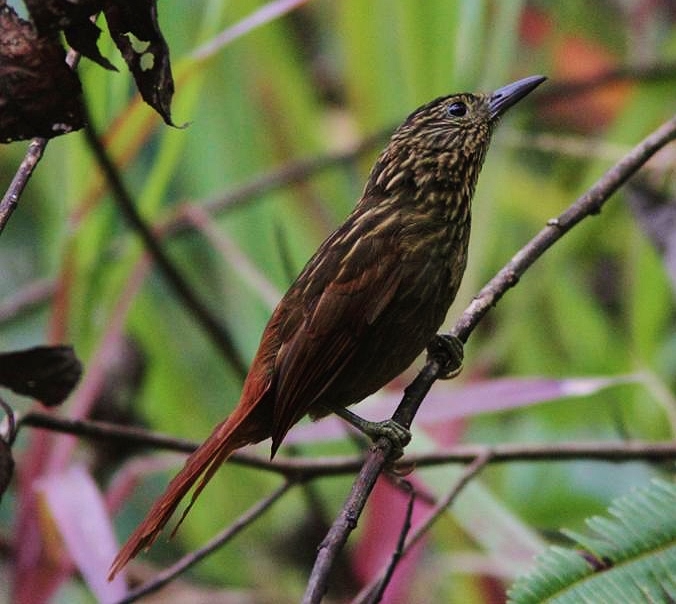 |
| Photo by William Price (Internet Bird Collection) |
Common name:
striped treehunter (en); trepa-musgos-listado (pt); anabate strié (fr); trepamusgos listado (es); strichelbaumspäher (de)
Taxonomy:
Order Passeriformes
Family Furnariidae
Range:
This South American species is found along the eastern slopes of the Andes, from south-western Venezuela to central Bolivia.
Size:
These birds are 20-21 cm long.
Habitat:
The striped treehunter is mostly found on the undergrowth of mountain rainforests, but also in degraded patches of former forests, at altitudes of 900-3.000 m.
Diet:
They hunt among dense vegetation, taking various invertebrates.
Breeding:
Striped treehunters breed in October-January. They nest is made of rootlets and placed in a burrow excavated into a steep bank or vegetation-covered road-cut. The female lays 2-3 eggs which are are incubated for 13-17 days. The chicks are fed by both parents and fledge 20-23 days after hatching.
Conservation:
IUCN status – LC (Least Concern)
This species has a large breeding range and is described as fairly common. This population is suspected to be stable in the absence of evidence for any declines or substantial threats.







